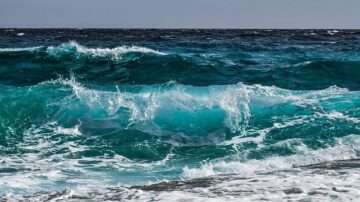 London (PA Media/dpa) – Hermit crabs are attracted to an additive released by plastics in the oceans that could lead to them mistaking pollution for food, researchers have found.
London (PA Media/dpa) – Hermit crabs are attracted to an additive released by plastics in the oceans that could lead to them mistaking pollution for food, researchers have found.
A team at the University of Hull has been studying the combined impact of climate change, plastic and other molecules on marine species.
Studies of the waters off the Yorkshire coast revealed that a plastic additive called oleamide elicits hyperactivity in hermit crabs, with their respiration rate increasing in response to low concentrations.
The team found that oleamide can be mistaken for the chemical released by food sources during decomposition, meaning the crabs may travel a distance in search of a meal, only to discover plastic.
PhD candidate Paula Schirrmacher, who was part of the research team, said: «Our study shows that oleamide attracts hermit crabs.
«Respiration rate increases significantly in response to low concentrations of oleamide, and hermit crabs show a behavioural attraction comparable to their response to a feeding stimulant.
«Oleamide also has a striking resemblance to oleic acid, a chemical released by arthropods during decomposition.
«As scavengers, hermit crabs may misidentify oleamide as a food source.
«This research demonstrates that additive leaching may play a significant role in the attraction of marine life to plastic.»
Oleamide has previously been identified as a major constituent in the sex pheromone of cleaner shrimp – a distant relative of the hermit crab – and could be used for chemical signalling in other species, the report found.
The researchers said that plastic additives mimicking marine infochemicals may be a problem not limited to hermit crabs and the odour associated with food and needed further investigations to initiate mitigation measures.
Schirrmacher’s research on hermit crabs in Robin Hood’s Bay in North Yorkshire also examined how hermit crabs detect smells in acidified oceans and found that the creatures were attracted to a chemical cue known as PEA (2-phenylethylamine).
PEA is known to warn mammals and sea creatures of predators and its effectiveness may be increased in an acidified ocean, the scientists said.
Researcher Dr Christina Roggatz said: «In short, pH can make or break successful communication in the ocean.»
The university said another study found that rising sea temperatures, combined with increased plastic pollution, can confuse the breeding cycles of blue mussels and affect reproduction rates.
Research showed that male blue mussels were affected by increased temperature, while females were sensitive to DEHP – a toxic chemical found in many plastics.
Luana Fiorella Mincarelli, a PhD student, said: «It is critically important to understand how plastic additives work on molecular levels, especially on reproductive success.
«We have found that their toxic effect can be amplified in a climate change scenario.»

